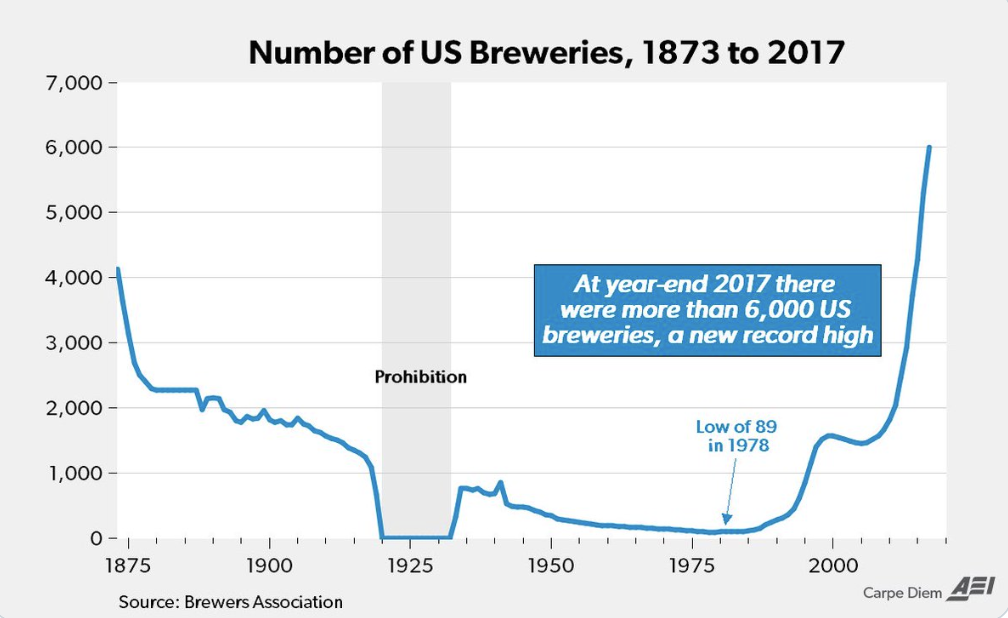What We’re Reading
The next time you hear Sir David Attenborough say: ‘Anyone who thinks that you can have infinite growth on a planet with finite resources is either a madman or an economist’, ask him this: ‘But what if economic growth means using less stuff, not more?’ For example, a normal drink can today contains 13 grams of aluminium, much of it recycled. In 1959, it contained 85 grams. Substituting the former for the latter is a contribution to economic growth, but it reduces the resources consumed per drink.
As for Britain, our consumption of ‘stuff’ probably peaked around the turn of the century — an achievement that has gone almost entirely unnoticed. But the evidence is there. In 2011 Chris Goodall, an investor in electric vehicles, published research showing that the UK was now using not just relatively less ‘stuff’ every year, but absolutely less. Events have since vindicated his thesis. The quantity of all resources consumed per person in Britain (domestic extraction of biomass, metals, minerals and fossil fuels, plus imports minus exports) fell by a third between 2000 and 2017, from 12.5 tonnes to 8.5 tonnes. That’s a faster decline than the increase in the number of people, so it means fewer resources consumed overall.
I can drive my Prius from NY to Syracuse faster than I can fly there. Even though a plane has been engineered to have a much higher top speed, the door to door costs of travel (security theatre, parking, checking in, the rest of the last mile once I land) aren’t impacted at all by the top speed of the chosen form of transport.
Top speed is easy to measure and fun to work on. But for most of the people you work with, there are dozens of factors that matter more than the easily measured versions of top speed that are talked about.

Long tails:
Over 4 million of the 30 million songs on Spotify have never been streamed by anyone.
— Tanay Jaipuria (@tanayj) January 2, 2020
Forgotify lets you listen to the songs in this forgotten end of the long tail 👇https://t.co/73Bv5pMXC0
“This is about realizing that we’re going to die one day and being more selective in who we spend time with [and] fully accepting that we’ll never achieve many things,” says Arthur Stone, professor of psychology, economics, and health policy and management at the University of Southern California. He adds that these realizations tend to leave people with smaller but more enriching social circles, a predilection toward happiness over hassle and a higher likelihood of general contentment.
Have a good weekend.